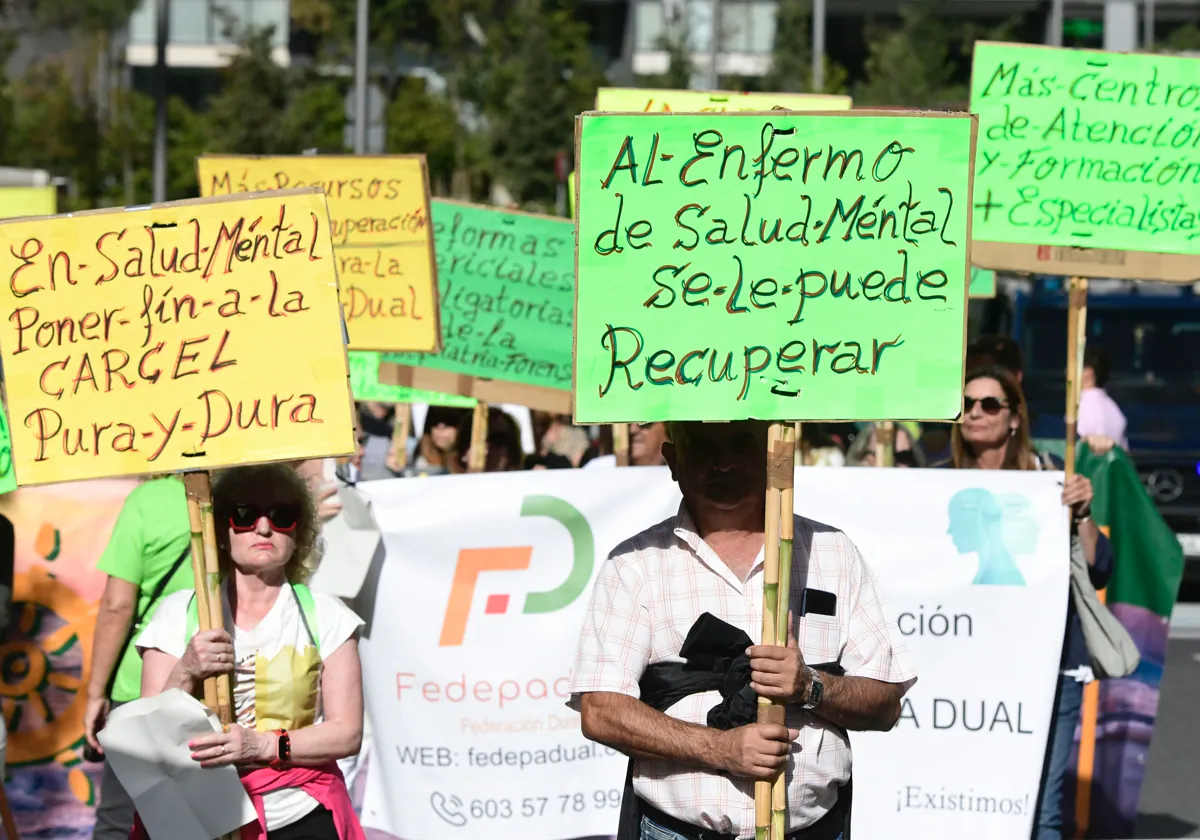The Mental Health Federation, the organization that has brought together citizens suffering from these diseases and their families for four decades, today called on the Spanish authorities to put an end to forced confinement and treatment, which is carried out without the consent of the affected person, something they confirm is practiced repeatedly and in an abusive manner in hospitals and homes. Elderly care and psychiatric centres.
The federation made this claim after the public presentation of a legal report on social and health care for mental health patients in Spain, prepared by experts from the Carlos III University of Madrid. The document concluded that common practices such as involuntary admission and treatment, in addition to the violation of human rights, violate the United Nations Convention on the Rights of Persons with Disabilities, which Spain signed in 2008 and is binding. The treaty is mandatory for all Spanish powers and institutions.
Therefore, the Patients’ Organization demands that the necessary legal reforms be addressed immediately to prevent coercive measures from becoming automatic, and, on the contrary, from becoming the exception, once all channels for patients have been exhausted. In their health care environment.
Legal experts and patients first demand the deletion of the point in Article 763 of the Code of Civil Procedure that allows involuntary detention in cases of “mental disorder.” They demand that forced confinement should only be possible in cases of vital necessity and when the person is not in a position to express his consent by any means, means or form, as well as the support system available to him (relatives, close friends, and caregivers) would also be ineffective. By a critical emergency, experts understand an exceptional or exceptional and specific situation of citizens that may require immediate action because it involves an imminent risk to their life or personal safety.
In these few justified cases of involuntary confinement, they make clear that only remedies necessary to preserve safety of life or personal integrity may be adopted, with priority given to remedial measures that are least restrictive of a person’s rights and freedoms, and provided that the measure is effective and, above all, proportionate.
“Vicious and brutal treatment”
The second prohibition they ask for is actions that they consider to be more bloody. Complete separation of coercive practices in the field of health, expressly prohibited by the agreement signed by Spain. They want to deny all containment mechanisms for the patient, whether physical, pharmaceutical, or associative. Union President Neil Gonzalez Zapico said: “We defend that there is always an alternative in the face of coercion, and that treatment cannot turn into torture, humiliation or punishment.” “They are receiving humiliating and brutal treatment,” said Contxe García de Marina, a Catalan patient, while what she is going for is “to receive care and recovery.”
Likewise, patients and lawyers demand the end of hospital isolation – which restricts movement or communication – the application of irreversible treatments, the use of any procedure and medications or their inclusion in research without the informed consent of the party concerned, and the application of isolation, electric shocks or psychosurgery in children and adolescents even if Their parents allowed them to do so.
In short, González Zapico demands, fifteen years after its signing, compliance with the UN Convention in Spain and the establishment of a new regulation ensuring that the general rule in hospitals, consultations and residences is “treatments that promote dialogue and safe spaces.” . “We support a model of comprehensive psychosocial care that includes among its essential elements the establishment of multidisciplinary care and care teams, the use of peer groups (patients with similar characteristics), an integrated care plan, and the dissemination of advance instructions or appointment and summation of “trusted persons” to assist the patient. And monitor his rights and interests.

“Beeraholic. Friend of animals everywhere. Evil web scholar. Zombie maven.”

:quality(85)/cloudfront-us-east-1.images.arcpublishing.com/infobae/5DDXTCMJZBHZZMM3SZDMT7CNGQ.jpg)


:quality(85)/cloudfront-us-east-1.images.arcpublishing.com/infobae/RHOIDFCETNHXTHUBH7GZNO3WWI.jpg)
:quality(85)/cloudfront-us-east-1.images.arcpublishing.com/infobae/Y65NELVZONDSTJR2YGXD73Q5DM.jpg)

More Stories
The municipal school health program begins this Thursday
Physicists have been trying to reconcile relativity and quantum mechanics for a century. And they have good reason
How did the last ice age shape human survival and what lessons does it leave for the future?